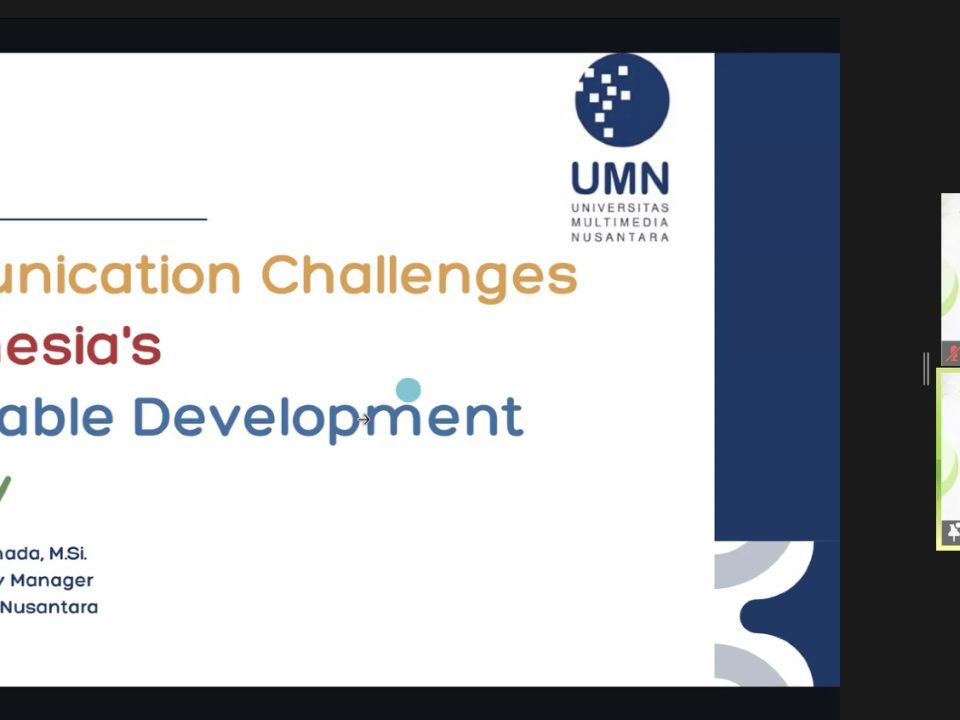
New Students Must Know 10 Ethics for Sending Assignments to Lecturers Via Email
October 28, 2022
Benefits of Joining a Student Organization in College
November 7, 2022scholarGetting a college scholarship is a dream for prospective students who want to continue their studies at the undergraduate, master’s, or doctoral levels. Usually, the scholarship provider will collaborate with several university partners to find potential awardees in line with the goals of the scholarship provider.
However, getting a scholarship is certainly not easy. Because there is one stage that prospective scholarship recipients must pass to help the scholarship provider know to who to give the scholarship. The stage in question is the scholarship interview stage. Scholarship interviews are always thrilling for prospective scholarship recipients because it determines whether this candidate is eligible to receive a scholarship.
Talking about scholarship interviews, fellow UMN friends must know that anything can happen in this session. Starting from unpredictable questions given by the interviewer(s), the answers provided by prospective scholarship recipients and your attitude in answering the questions are crucial.
Many people shared that the scholarship interview process is not as scary as imagined. But it’s good for scholarship hunters to avoid the following mistakes so that your interview goes smoothly. Let’s read along!
1. Dressing Too Casually
The most visible mistake in the eyes of the interviewer is when the candidate wears clothes that are too casual in the sense that the physical appearance does not match the situation—for example, wearing a t-shirt to the scholarship interview session. Dress up! It’s a good idea to dress appropriately for the interview. It doesn’t have to be very formal, but make sure you look neat.

Source: LifeHack
For example, using a collared shirt with black pants and shoes. Avoid wearing jeans and t-shirts. For women, if you are confused about what outfit to wear for an interview, you can wear a semi-formal dress. By wearing neat clothes and looking clean, you can give an excellent first impression to the interviewer.
Also read: Dedicated to the Nation, UMN Provides Full Bachelor Scholarships Until Graduation.
2. Creating a Bad Impression
Ever heard of the term “unfriendly, one star?” Well, this also applies to scholarship interview sessions. For example, the interviewer asks you questions politely and nicely, but you’d respond to their questions harshly and indifferently. Indeed the interviewer will judge you, “wow, why did he/she answer like this?”
Being impolite may give the impression that the candidate is not serious about receiving the scholarship. Not infrequently, when the interviewer is not comfortable with the candidate’s style or demeanor, the interviewer may stop interviewing immediately and end the conversation. Surely you don’t want the interview process to not meet your expectations.
Whatever you are feeling, whether you are sad or angry, you must remain professional. You, as a prospective scholarship recipient, must respond to questions calmly and must not create a bad impression in front of the interviewer. For example, answering in a high and curt tone, looking arrogant in front of the interviewer, impolite body language, and other things that may make the interviewer not interested in you. It’s best if you focus entirely on the interview process.
3. Lack of Information About The Chosen University
The next thing crucial in scholarship interviews is the candidate’s lack of information about the intended university. Many scholarship hunters usually fail at this question simply because they do not know the complete information about the university they are after.
If you fail to answer the university-related questions, the interviewer may feel like you are not serious and are not ready to get a scholarship– disqualifying you from receiving the scholarship and thinking you are not up to date about your target university. This question may seem trivial, but answering this question well may help convince the scholarship provider that you did your research and deserve to get the scholarship.

Source: UMN
It’s the same when applying for jobs. The interviewer will ask “why did you apply for a job at this company?” If you fail to answer, the interviewer may judge that you lack insight. So, as much as possible, this mistake should be avoided.
How to do it? Look for the complete information on the website of your target university. Starting from the campus, the department, the facilities, the courses, the concentration, and the ranking of the campus when compared with other campuses. Most importantly, you can also share the advantages of your target campus that other campuses don’t have.
4. Sharing Reasons That Are Too Personal
When the interviewer asks you a question, sometimes the candidate provides reasons that still lead to personal assumptions. A simple example, the interviewer wants to know why you want to get this scholarship. Then with full confidence, you answered, “yes because I really wanted to go to college for free.” Hearing this answer, the interviewer will feel as if the candidate is still subjective– being money oriented rather than the goal to study.
Yes, we all know that students find scholarships to ease the burden of tuition fees because all the costs will be paid by the scholarship provider– starting from tuition fees, research costs, living costs or housing, and others. But sharing that you want the scholarship because you want to go to college for free doesn’t sit right. Therefore, make sure you have a strong reason to answer this question. Eliminate answers that seem selfish. As much as possible you explain the reason that the scholarship you receive will be useful for your study needs.
5. Bragging and Being Arrogant
Another crucial thing is not to try to brag in front of the interviewer. Being confident is necessary but there are limits to bragging about yourself. Be mindful of what you should and shouldn’t say to the interviewer, do not over-exaggerate, and mind the tone. The interviewer wouldn’t like it if they feel the candidate is being too arrogant by hyping all their achievements.
6. Lack of Confidence and Kick when Answering Questions
The last essential thing is to make sure you answer the questions confidently about questions regarding the scholarship and your target campus.
 Source: Cermati
Source: Cermati
Ensure that your answers got a “kick” to them. Do not give unconvincing answers that make you look incompetent or unconfident. Prepare answers straight to the point and answer whatever the interviewer asks.
Also read: Want to Get a Bachelor Tuition Fee Discount? Check Out the UMN Scholarship Program.
Those are the six mistakes you must avoid during a scholarship interview session. Ensure that you make a good impression on the interviewer so that your chances of getting a scholarship are higher.
Did you know? In dedication to educating the nation’s children, UMN provides a full Bachelor’s scholarship until graduation. There are also discount fees and other kinds of scholarships provided by UMN. For further information, you can visit the official UMN website here.
By Reyvan Maulid
English translation by Levina Chrestella Theodora
Kuliah di Jakarta untuk jurusan program studi Informatika | Sistem Informasi | Teknik Komputer | Teknik Elektro | Teknik Fisika | Akuntansi | Manajemen| Komunikasi Strategis | Jurnalistik | Desain Komunikasi Visual | Film dan Animasi | Arsitektur | D3 Perhotelan , di Universitas Multimedia Nusantara. www.umn.ac.id





